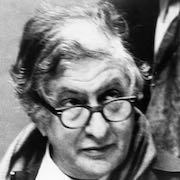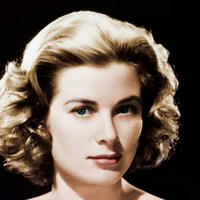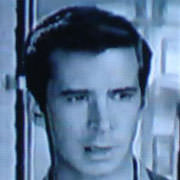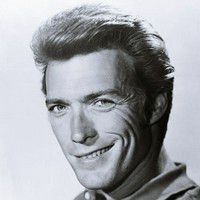Sir Alfred Joseph Hitchcock KBE (13 August 1899 – 29 April 1980) was an English film director, producer, and screenwriter. He is one of the most influential and widely studied filmmakers in the history of cinema. Known as the "Master of Suspense", he directed over 50 feature films in a career spanning six decades, becoming as well known as any of his actors thanks to his many interviews, his cameo roles in most of his films, and his hosting and producing the television anthology Alfred Hitchcock Presents (1955–65). His films garnered 46 Academy Award nominations including six wins, although he never won for Best Director despite having had five nominations. In 1955 Hitchcock became an American citizen.
Born in Leytonstone, London, Hitchcock entered the film industry in 1919 as a title card designer after training as a technical clerk and copy writer for a telegraph-cable company. He made his directorial debut with the British-German silent film The Pleasure Garden (1925). His first successful film, The Lodger: A Story of the London Fog (1927), helped to shape the thriller genre, while his 1929 film, Blackmail, was the first British "talkie". Two of his 1930s thrillers, The 39 Steps (1935) and The Lady Vanishes (1938), are ranked among the greatest British films of the 20th century.
By 1939, Hitchcock was a filmmaker of international importance, and film producer David O. Selznick persuaded him to move to Hollywood. A string of successful films followed, including Rebecca (1940), Foreign Correspondent (1940), Suspicion (1941), Shadow of a Doubt (1943), and Notorious (1946). Rebecca won the Academy Award for Best Picture, although Hitchcock himself was only nominated as Best Director; he was also nominated for Lifeboat (1944) and Spellbound (1945).
The "Hitchcockian" style includes the use of camera movement to mimic a person's gaze, thereby turning viewers into voyeurs, and framing shots to maximise anxiety and fear. The film critic Robin Wood wrote that the meaning of a Hitchcock film "is there in the method, in the progression from shot to shot. A Hitchcock film is an organism, with the whole implied in every detail and every detail related to the whole." Hitchcock made multiple films with some of the biggest stars of Hollywood, including four with Cary Grant in the 1940s and 50s, three with Ingrid Bergman in the last half of the 1940s, four with James Stewart over a ten-year span commencing in 1948, and three with Grace Kelly in the mid-1950s.
After a brief lull of commercial success in the late 1940s, Hitchcock returned to form with Strangers on a Train (1951) and Dial M for Murder (1954). Between 1954 and 1960, Hitchcock directed four films often ranked among the greatest of all time: Rear Window (1954), Vertigo (1958), North by Northwest (1959), and Psycho (1960), the first and last of these garnering him Best Director nominations. In 2012, his psychological thriller Vertigo, starring Stewart, displaced Orson Welles' Citizen Kane (1941) as the British Film Institute's greatest film ever made based on its world-wide poll of hundreds of film critics. By 2018 eight of his films had been selected for preservation in the United States National Film Registry, including The Birds (1963) and his personal favourite, Shadow of a Doubt (1943). He received the BAFTA Fellowship in 1971, the AFI Life Achievement Award in 1979 and was knighted in December that year, four months before he died.
Cite error: There are <ref group=lower-alpha> tags or {{efn}} templates on this page, but the references will not show without a {{reflist|group=lower-alpha}} template or {{notelist}} template (see the help page).













